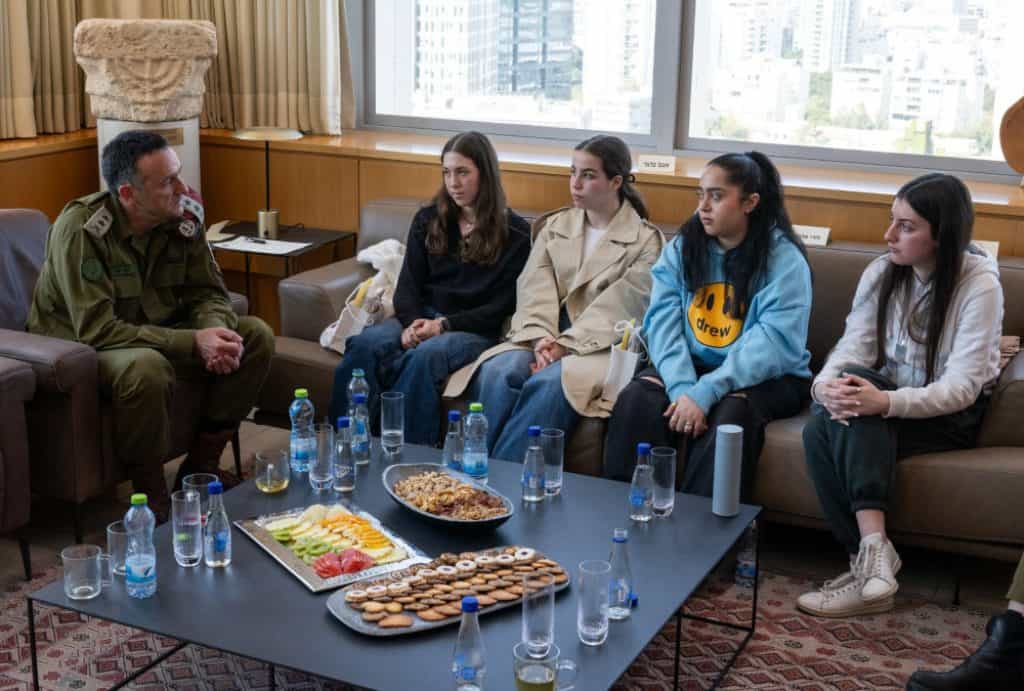
On February 20, Hamas released four caskets ostensibly carrying the bodies of four deceased hostages to the Red Cross in Gaza, including Shiri Bibas and her children, Ariel and Kfir. The Red Cross transferred the caskets to the Israel Defense Forces (IDF). However, Israel has since identified one set of remains as those of a Palestinian woman instead of Shiri Bibas, imperiling the ceasefire.
The transfer was part of the first phase of a ceasefire deal agreed upon in January 2025. Overall, 33 hostages are supposed to be released in weekly handovers each Saturday. At least eight of these hostages were expected to be deceased. The bodies Hamas returned on February 20 were supposed to include four of the eight deceased individuals rather than three and were handed over earlier than initially expected.
The ceasefire deal remains precarious as each side accuses the other of various violations. However, Hamas’s failure to release Shiri Bibas’s remains has sparked significant outrage and presents new risks to the agreement. “This is a violation of utmost severity by the Hamas terrorist organization, which is obligated under the agreement to return four deceased hostages,” the IDF stated on February 21.
In addition, Hamas paraded the caskets carrying the bodies before their release to the Red Cross, including placing them on a stage amid propaganda depicting Israeli Prime Minister Benjamin Netanyahu stained with blood above images of the hostages when they were alive. “The parading of bodies in the manner seen this morning is abhorrent and cruel, and flies in the face of international law,” stated the United Nations’ office of the High Commissioner for Human Rights.
One casket transferred on February 20 contained the body of Oded Lifshitz, who was born in 1940 and was one of the founders of Kibbutz Nir Oz, where he was kidnapped on October 7, 2023. His wife, Yocheved, was also kidnapped but was released on October 24, 2023. Two of the other caskets contained the bodies of Ariel and Kfir Bibas. Kfir, only nine months old when he was kidnapped, was taken with his brother Ariel, four years old, his mother Shiri, and his father, Yarden. Yarden was freed alive on February 1 by Hamas.
The fourth casket was supposed to contain Shiri’s body. However, the IDF said that “following the completion of the identification process by the National Institute of Forensic Medicine in collaboration with the Israel Police […] it was determined that the additional body received is not that of Shiri Bibas, and no match was found for any other hostage.”
Israel stated that the misidentified remains were a violation of the hostage deal, and Israeli Prime Minister Benjamin Netanyahu said Israel would avenge the violation. “We demand that Hamas return Shiri home along with all our hostages,” the IDF stated.
The Bibas family was kidnapped from Kibbutz Nir Oz, only a mile from the Gaza border. They were reportedly taken by the Mujahideen Brigades, one of many smaller terrorist groups that operate in Gaza. However, Israel has accused Palestinian Islamic Jihad (PIJ) of killing Oded Lifshitz, illustrating how the attack and subsequent kidnapping of the kibbutz’s residents were carried out by multiple groups.
The Mujahideen Brigades claimed that Shiri and her two children were killed in an Israeli airstrike, and Hamas has expressed surprise the wrong body was placed in the casket it handed over. On February 21, the IDF said that “contrary to Hamas’s lies, Ariel and Kfir were not killed in an airstrike. Ariel and Kfir Bibas were murdered by terrorists in cold blood.”
The ceasefire deal has continued since late January amid various tensions. For instance, at one point, Israel prolonged the withdrawal of IDF troops from the Netzarim Corridor until Hamas handed over one of the civilian Israeli women held in Gaza. In addition, on February 10, Hamas claimed it would delay the hostage releases scheduled for February 15. However, the group relented and returned Israeli hostages Alexander (Sasha) Troufanov, Sagui Dekel Chen, and Iair Horn. Hamas has also released five Thai citizens who were not initially mentioned in the deal.
Israel and Hamas, along with mediators from Qatar and Egypt and support from the US, are supposed to be discussing the second phase of the ceasefire deal. So far, these talks have appeared to be on thin ice, and it is unclear if the two sides can come to an agreement to extend the deal.
The IDF’s 162nd Division, which fought continuously since Israel’s ground operation began on October 27, has redeployed from northern Gaza and was replaced by the 252nd Division in a security zone along the border. This shift is notable, removing one of the IDF’s most battle-hardened units from the field. Meanwhile, the IDF has continued to fire warning shots at people in Gaza who have approached troops near the border. In addition, the IDF identified an attempt to smuggle items into southern Gaza via a drone on February 18.
In Lebanon, the IDF is also dealing with the outcome of a separate ceasefire with Hezbollah that began on November 27. That ceasefire was extended to February 18 and has largely continued. However, the IDF was supposed to withdraw entirely from Lebanon by February 18 but remains at a few key strategic points. Israeli troops have continued to dismantle Hezbollah’s terrorist infrastructure up until they withdraw.
Israel also attacked Hezbollah rocket launchers and a drone operator over the week of February 17-21. On February 20, the Israel Air Force “struck crossing points in the area of the Lebanon-Syria border used by the Hezbollah terrorist organization in attempts to smuggle weapons into Lebanese territory,” the IDF noted.







